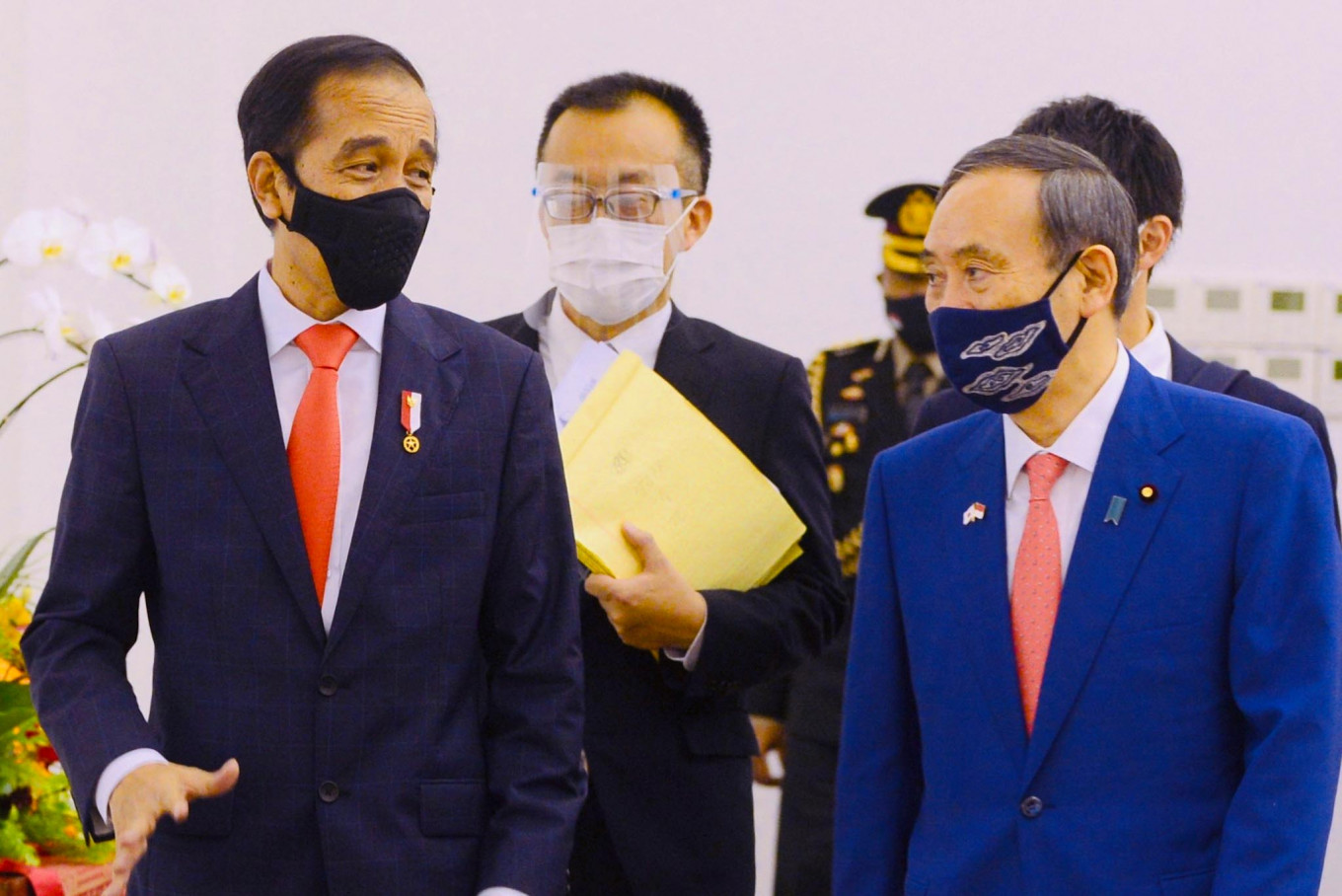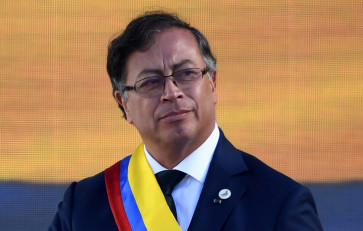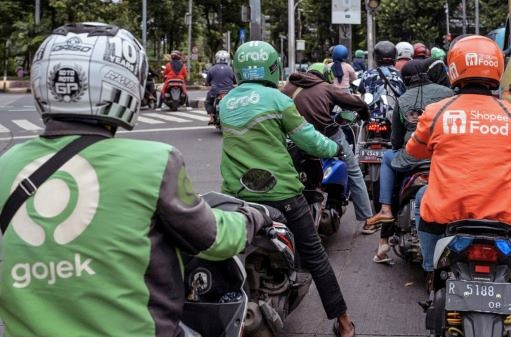Popular Reads
Top Results
Can't find what you're looking for?
View all search resultsPopular Reads
Top Results
Can't find what you're looking for?
View all search resultsJapan's Suga dismisses concern over ‘Asian NATO’ in Indo-Pacific
Japanese Prime Minister Yoshihide Suga has dismissed China’s concerns that Indo-Pacific cooperation was aimed at establishing “an Indo-Pacific version of NATO”, as he wraps up his first Southeast Asia tour with a visit to Indonesia.
Change text size
Gift Premium Articles
to Anyone
Japanese Prime Minister Yoshihide Suga has dismissed China’s concerns that Indo-Pacific cooperation was aimed at establishing “an Indo-Pacific version of NATO”, as he wraps up his first Southeast Asia tour with a visit to Indonesia.
Suga met with President Joko “Jokowi” Widodo in Bogor on Tuesday evening, right after he landed in Jakarta from Hanoi, where he had met his Vietnamese counterpart, Nguyen Xuan Phuc, on Monday.
The two nations were chosen as Suga’s first official visit destinations since he took office last month because of Japan’s long-standing commitment to ASEAN and the wider region, Suga said.
Vietnam is currently chair of the ten-nation ASEAN, and Indonesia is its de facto leader and largest economy.
Speaking to the media in Jakarta on Wednesday, the new prime minister reiterated his country’s wish to see an Indo-Pacific with a rules-based, free and open order.
“[What is meant] by a Free and Open Indo-Pacific, for Japan, is not targeting any specific country. And we think it is possible to cooperate with any country that shares the vision. And there is no intention at all to create an Indo-Pacific version of NATO,” he said.
The North Atlantic Treaty Organization (NATO) is a post-World War II military alliance between 30 countries of the North Atlantic that constitutes a system for collective defense.
Meanwhile, the Indo-Pacific is a strategic reimagining of the Asia-Pacific that invariably tries to take the focus away from China and its increasing influence in the wider region.
Suga’s remarks were a direct response to a statement made by Chinese Foreign Minister Wang Yi during his own Southeast Asia tour last week, where he said the strategic cooperation between the United States, Japan, Australia and India, known as the Quadrilateral Security Dialogue, was an effort to build an “Indo-Pacific NATO”.
China’s concerns continued to grow as top diplomats of Quad countries met in Tokyo in early October, where US Secretary of State Mike Pompeo urged his partners to deepen cooperation “to protect our people and partners from the CCP’s exploitation, corruption and coercion,” Reuters reported.
The meeting failed to issue a joint statement, and ministers of Australia, Japan and India refrained from mentioning China by name in their respective statements.
Most recently, India, which holds the annual military drills called Malabar with the US and Japanese navies, announced that it had invited Australia for next month’s exercises in the Bay of Bengal in a sign of renewed cooperation between the Quad countries.
In a joint press conference with Malaysian Foreign Minister Hishammuddin Hussein last week, Wang said the strategy stemmed out of the US’ Cold War mentality that stirred up confrontation among different groups and blocs.
“The strategy contravenes the spirit of mutual benefit and win-win spirit that has been pursued by East Asia cooperation, impacts the regional cooperation architecture with ASEAN at its center and will eventually undermine the prospect of peace and development of East Asia,” he said, as quoted by Xinhua.
Even though interpretations of what an Indo-Pacific order entails vary depending on the geopolitical interests of countries in the region, they generally consider Southeast Asia as the centerpiece, linking the Indian and Pacific oceans.
While some experts have suggested that the idea has been around since 2003 and that it was repopularized by US President Donald Trump in 2017, it was Suga’s predecessor Shinzo Abe who was among the first leaders from the region to be heavily invested in the Indo-Pacific.
During his tenure, Abe presented a concept called Free and Open Indo-Pacific as a way of integrating geography, geopolitics, democratic political values and freedom of navigation around the Indian and Pacific oceans.
Suga gave assurances that he aimed to continue Abe’s policy, including in engaging with ASEAN and supporting the ASEAN Outlook in the Indo-Pacific, an initiative proposed by Indonesia.
“There's no change at all to this principle under my government […]. As a nation of the Indo-Pacific, I have made clear Japan's will to continue to contribute to regional peace and prosperity,” he said.
During a joint statement with Suga on Tuesday evening, Jokowi called for the spirit of inclusive cooperation in the context of Indo Pacific, as reflected in the ASEAN Outlook on the Indo-Pacific.
“I also underlined hope that the South China Sea can continue to be a sea of peace and stability,” he said.
As one of the bigger bones of contention in Southeast Asia, the South China Sea has once again become an important arena for the US-China rivalry to play out.
China has made sweeping claims over the disputed waters, areas of which are also claimed by several ASEAN states.
Indonesia, while not a party to the dispute like Vietnam, insists on respect and adherence to international law.
Suga took a stronger stance over the dispute, saying his country “strongly opposed any action that escalated tensions in the South China Sea”.
“I believe it is important for all countries concerned to aim to work toward the peaceful resolution of disputes based on international law instead of the use of force or coercion. From this standpoint, we will closely cooperate with Indonesia,” he said.
Indonesia and Japan agreed to hold a Two-Plus-Two ministerial meeting in the near future and to speed up discussions for possible defense procurement deals as well as cooperation on maritime law enforcement.










